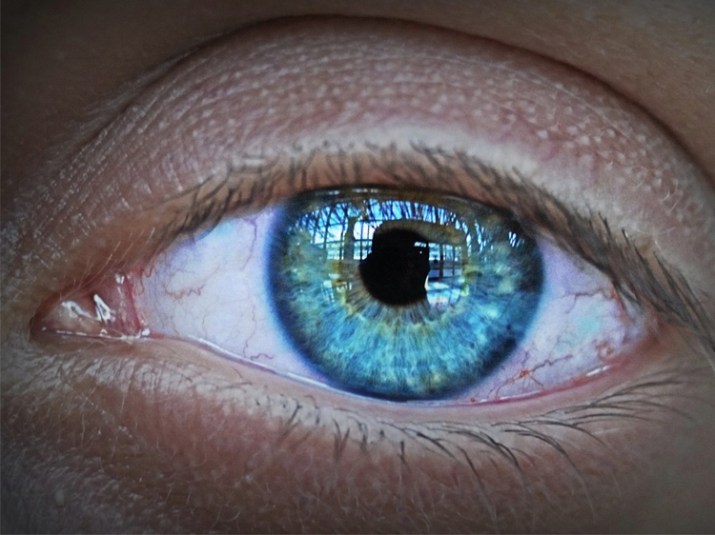Our Eyes Might Be Able to Help Us Predict Memory Loss Later in Life, Study Suggests

They say that the eyes are the window to the soul — but could they also be the window to how long your memory will last? A March 2018 study suggests that people who show signs of damage in their retinas around age 60 are more likely to have memory problems by the time they reach 80. But before you rush to the mirror to examine your eyeballs, it’s worth taking a closer look — literally — at what these findings actually mean.
The research, published in the American Academy of Neurology, included 12,317 people around age 60 who had photos taken of the backs of their eyes with a special retinal camera. Scientists used these special retinal cameras to determine whether the people’s eyes showed signs of retinopathy, aka damage to the blood vessels in the retina.
The participants also took memory tests several times over two decades: first at the start of the study, again about six years later, and finally about 20 years after their first test. The results? The participants who had moderate to severe retinopathy (more damaged blood vessels in their eyes) had bigger drops in their memory test scores over time than people with less severe retinopathy.
Before you panic and start wearing sunglasses around the clock, keep in mind that this study did not prove that changes in the eyes cause memory loss; rather, the study found a connection between damage to certain blood vessels in the eyes and poor memory test scores later in life. It’s also worth noting that this study has other limitations, including the fact that researchers only took photos of one eye for each participant.
If you have concerns about your eyes, it’s always best to consult a trusted and professional eye doctor. No good can come from trying to self-diagnose your eye problems using your own eyes!
That said, there are a few simple ways that you can keep your eyes healthy and reduce your risk of retinopathy later on in life, and they come straight from the National Eye Institute. Take it away, docs!
How to Keep Eyes Healthy
Schedule a comprehensive dilated eye exam. Some eye diseases, such as glaucoma and age-related macular degeneration, have few to no warning signs. A comprehensive eye exam is the only way to detect serious eye diseases in the early stages when they’re easier to manage or treat.
Talk to your family members about their eye health. Because some eye diseases are hereditary, it’s important to know if any relatives of yours have been diagnosed with a condition.
Make a habit of wearing sunglasses when you’re outside. You want to look for ones that block out 99 to 100 percent of both UV-A and UV-B radiation.
Eat right for your eyesight. We’ve all heard about carrots being great for eyesight, but there are many other fruits and veggies that are great for your eyes, too. Leafy greens, such as collard greens and kale, are especially good for eye health. Eating fish high in omega-3 fatty acids, such as salmon, can give you a big boost, too.
Remember to give your hard-working eyes a rest. In this tech-friendly age, we’ve all fallen into the bad habit of staring at screens for much — if not the majority — of the day. Experts recommend the 20-20-20 rule: Every 20 minutes, look away from your screen about 20 feet in front of you for 20 seconds. We don’t know about you, but our eyes could definitely use a few breaks throughout the day.
When it comes to your health, why stop at your eyes? The superfoods in the video below can help you live a longer, happier life:
More from FIRST
Chemicals on Nonstick Pans Linked to Weight Gain in New Study
Lower Blood Pressure Is Just a Staircase Away, Study Suggests
Pregnant Women on Low-Carb Diets More Likely to Have Babies With Birth Defects, Study Suggests
















